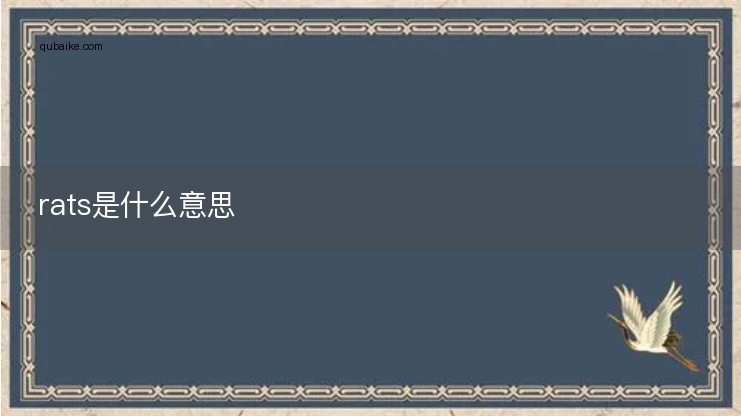rats
美[ræts] 英[ræts]
int. <俚>胡说;瞎扯
n. 老鼠;卑鄙的人(名词rat的复数)
v. 捕鼠;违背(动词rat的第三人称单数)
英英释义
名词rat- any of various long-tailed rodents similar to but larger than a mouse
- someone who works (or provides workers) during a strike
- a person who is deemed to be despicable or contemptible
- one who reveals confidential information in return for money
- a pad (usually made of hair) worn as part of a woman's coiffure
动词rat- desert one's party or group of friends, for example, for one's personal advantage
- employ scabs or strike breakers in
- take the place of work of someone on strike
- give (hair) the appearance of being fuller by using a rat
- catch rats, especially with dogs
- give away information about somebody
例句
- Stores of grain are frequently attacked by pests, especially rats.储存的 物经常受损坏,尤其是老鼠为患最甚。
- Rats gnawed off the lid of the box.老鼠咬开了盒盖。
- The magic spell changed the frogs and rats back into men.咒语将青蛙和老鼠又变回成了人。
- The magic spell turned the frogs and rats back into men.咒语将青蛙和老鼠又变回成了人。
- There is a warehouse infested by rats.那有一个大批老鼠出没的仓库。
- Rats terrify me.老鼠使我害怕。
- Weasel lives mainly on rats and rabbits.黄鼠狼主要以老鼠和兔子为食。
- The farmers smoked ten rats out.那个农民熏出来10只老鼠。
THE END
